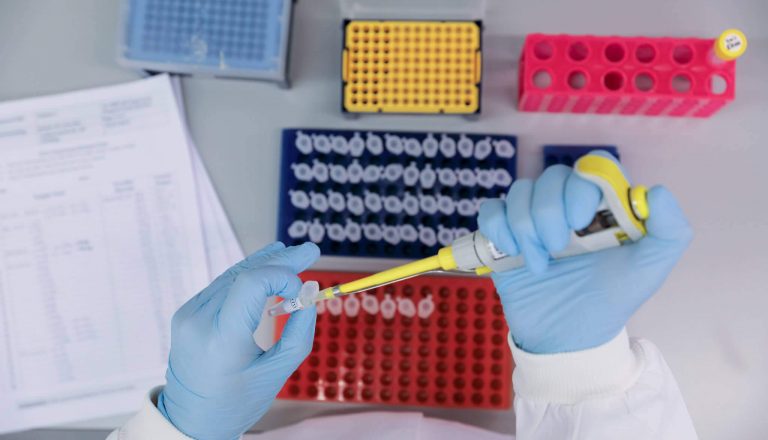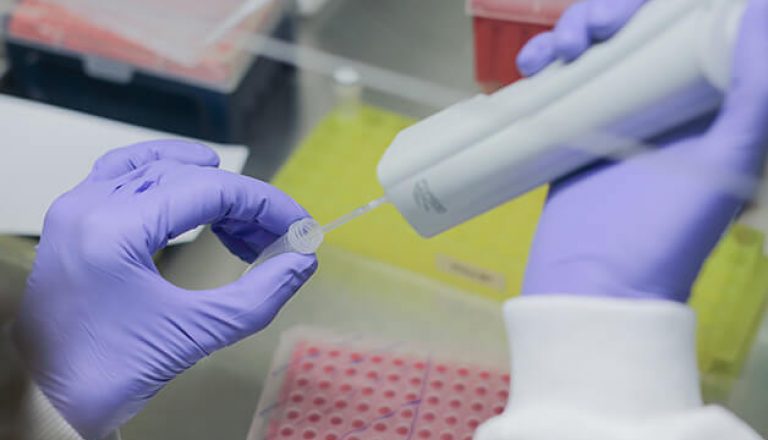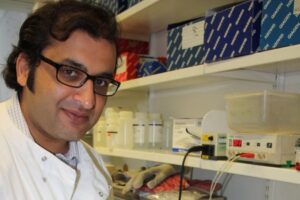Research
Diagnosing childhood medulloblastomas by improved MRI scans
The most common childhood brain tumours are called medulloblastomas. They are divided into different types, and because each responds differently to treatment, rapid diagnosis is essential. This project is focused on developing a new tool to allow quick diagnosis that can then be used when it comes to making decisions about treatment.
Our funding is helping doctors who work with children living with one of the most common form of brain tumours to develop a new diagnostic tool that uses MRI scanning techniques instead of surgery.

Project Details
- Non invasive identification of medulloblastoma genetic subtypes using metabolite profiles and imaging features
- Lead Researcher
- Professor Andrew Peet
- Research Centre
- Institute of Child Health, University of Birmingham
- City & Institution Postcode
- Birmingham B4 6NH
- Start Date
- 1 June 2015
- Project Duration
- 4 years and 4 months
- Grant Amount
- £499,681
Thank you
This research project on medulloblastoma has been successfully completed. Your donations allow us to fund ground-breaking research that can improve treatments given to children with cancer. Thank you. Your help allows us to continue to find ways to drive up the chances of survival for children with cancer and reduce the toxic side effects that can affect the rest of their lives.
Read the published paper: Children’s brain tumours could be diagnosed with 10-minute scan.
Overview
The most common malignant brain tumours in children are called medulloblastomas, and the four main sub-types have their own genetic make-up. Diagnosis is currently carried out by performing surgery to obtain a tumour sample, which is then sent to a laboratory for analysis.
In this project, Professor Peet and his colleagues will develop a new diagnostic tool that uses special MRI scanning techniques instead of surgery, and the team will also design a test that can distinguish between the chemical profiles of the different tumours. To do this, they will build up a ‘reference library’ containing up to 160 samples during the course of the project.
What difference will this project make?
The ultimate aim of this project is to develop non-invasive methods for diagnosing the sub-types of a common type of brain tumour. This will allow medical teams to plan treatment at the time the child is first referred, rather than waiting days or even weeks for surgery and the subsequent processing of samples.
This earlier diagnosis should help to improve outcomes by allowing more informed initial treatment decisions and earlier treatment planning. It will also aid discussions with the child and family in the crucial early stages of their admission to hospital.
Early diagnosis of the sub-types may also help to avoid unnecessary surgery and some of the associated complications, some of which can have serious implications for a young person’s quality of life in the future.
The insights that this project will offer into the metabolism of tumours may allow radically new treatment approaches to be taken, and in the future, accurate non-invasive diagnosis may avoid surgery altogether.
About the Research Team
Andrew Peet is Professor of Paediatric Oncology at the University of Birmingham and Honorary Consultant at Birmingham Children’s Hospital. He leads the Brain Tumour Research Group at the University of Birmingham, which is developing imaging for the diagnosis and management of childhood brain tumours.
This project builds on collaborations between Birmingham’s Brain Tumour Research Group, the Children’s Brain Tumour Research Centre in Nottingham, and the Medulloblastoma Biology Group at Newcastle University. These form an essential link between imaging and tumour biology, and the team is well placed to take methods developed by the project and translate them into routine clinical practice.

Other stories
We have lots of information to help you learn more about childhood cancer. From specific cancer types, to treatments and causes.






